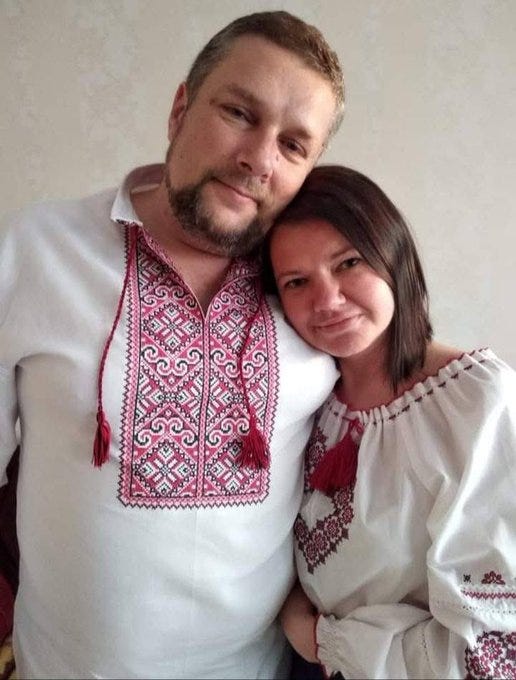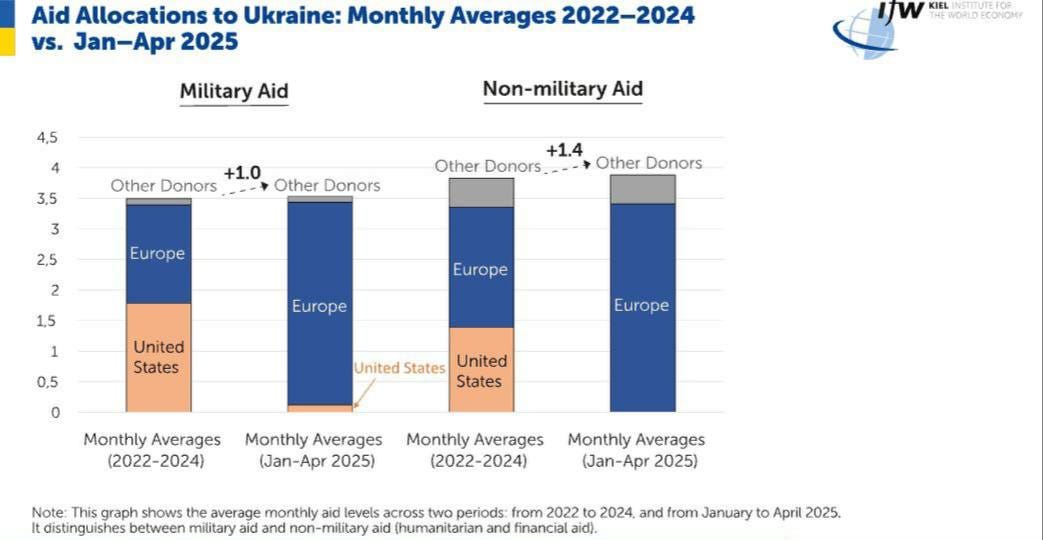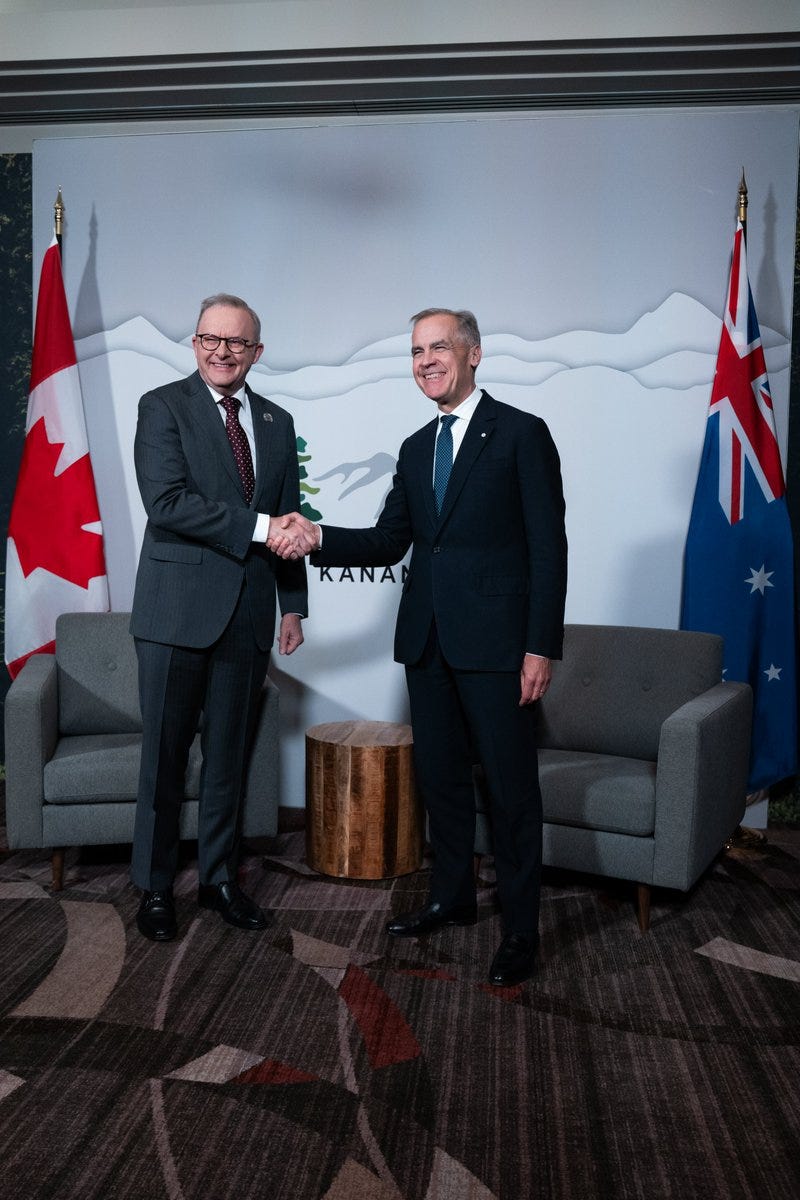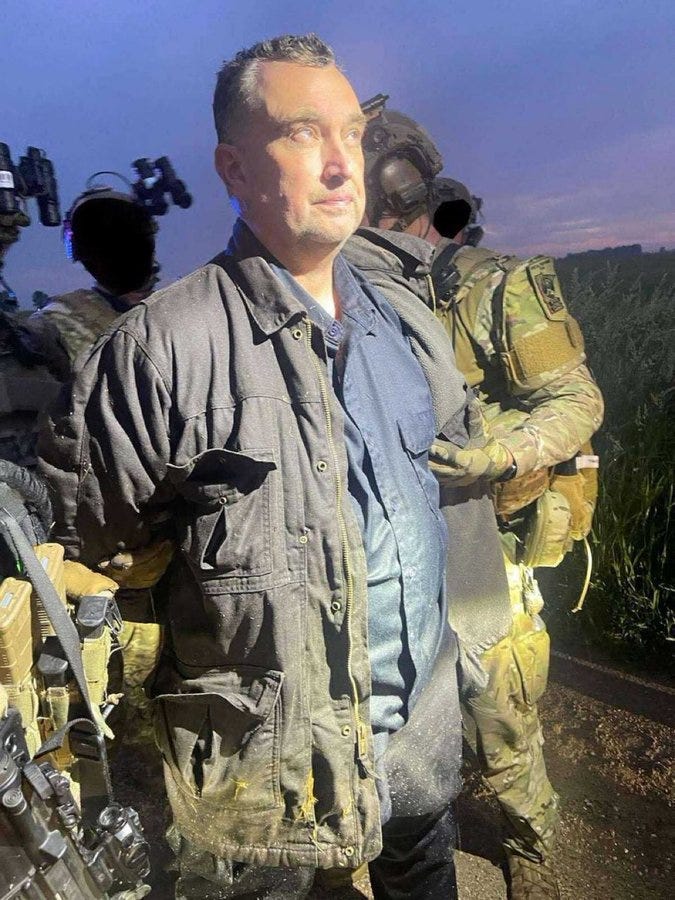Catching up…
For a general view of news from various geopolitical threatres, Scott’s EA Worldview is always superb.
🚋Please note: I’ll be travelling in the next few days, so E-Stories will be out in a limited format. In the post below, the G7 section is not as complete as how I would have liked—my apologies.
Let’s get going…
Stories we’re following…
Russia attacks Kyiv Oblast with drones, injuring 1. Russia launched a series of drone attacks on Kyiv Oblast overnight on June 15-16, targeting both the capital city and regional settlements, according to government officials. A 60-year-old man has been injured.
Natalia Andronova, a Mariupol resident, was sentenced to 6 years in a Russian penal colony for speaking the truth about Russian war crimes on social media. This is how Russia silences dissent in occupied Ukraine.
'Spit in face' — Zelensky condemns Russia's mass attack, dismisses idea of Putin as peacemaker. "This is Russia's spit in the face of everything the international community is trying to do to stop this war ... At the same time as Putin tries to portray himself as a mediator for the Middle East. The level of cynicism is staggering."
Zelensky: Russia offered to exchange their soldiers for Ukrainian children
"Russia is returning bodies in an extremely mutilated state, parts of bodies - in different bags. There are cases when the remains of one person are returned even during different stages of repatriation. In addition, during the last repatriations, Russia also transferred the bodies of Russian soldiers - mixed with the bodies of Ukrainians."
Oleksandr Shestovsky from Mariupol (pictured with his wife, Elena) before and after 3 years of Russian captivity. He was released as part of the most recent Ukraine-Russia prisoner exchange. He was not a professional soldier, but simply a man who stood up for the territorial defense of Mariupol after a full-scale Russian attack in 2022.


Combat Situation
Update: Russia ramps up its summer offensive in several directions, Ukraine's military says. The surge in activity near Novopavlivka suggests Russian forces are attempting to push into the Dnipropetrovsk Oblast, and to encircle the town of Kostiantynivka in Donetsk Oblast from three directions, which neighbors the embattled Donetsk Oblast, said Victor Tregubov, a spokesperson for Ukraine's Khortytsia group of forces.
"The Russians have long been trying to encircle Kostiantynivka from three directions. Previously, they had attempted to approach it from the Toretsk or Kramatorsk fronts or via Chasiv Yar – wherever they could break through first. But in a year and a half, they have had no success in any of those directions.
Now they are attempting to advance towards Kostiantynivka from the Pokrovsk front, specifically via the Pokrovsk-Kostiantynivka road, and push further. That’s where the most intense fighting is currently taking place."
ISW: Russian forces advanced in northern Sumy Oblast and near Kupyansk, Siversk, Chasiv Yar, and Toretsk. Please note that fighting continues along the entire eastern front.
Russian forces continued offensive operations in Kursk Oblast on June 15 but did not advance.
Neither Ukrainian nor Russian sources reported ground activity in northwestern Belgorod Oblast on June 15.
Russian Supporting Effort – Northern Axis (Russian objective: Create defensible buffer zones in northern Ukraine along the international border and approach to within tube artillery range of Sumy City)
North Korean losses exceed 6,000 in Russia's Kursk Oblast, UK intelligence reports. North Korea has lost over 6,000 troops in Russia’s Kursk Oblast—more than half of its deployed force, according to a June 15 UK defense intelligence report.
Ukrainian agents cause millions in damage during secret sabotage operation in Russia, HUR source says. Ukraine’s military intelligence (HUR) ignited an electrical substation during a sabotage operation in the Russian city of Kaliningrad, causing $5 million in damage and cutting electricity to a military production site, a source in HUR told the Kyiv Independent.
Behind the Lines
Russia is conducting illegal oil transfers near Greece, threatening EU waters and funding its war. Since July 2024, in clandestine nighttime operations, a Russian-controlled tanker, operating without Western insurance, has been conducting unauthorized ship-to-ship oil transfers in international waters near Greece and Cyprus.
These transfers allow Russia to hide the origin of its oil, bypass international sanctions, and deliver crude to third countries through covert means.
According to Ukraine’s Defence Intelligence (HUR), the vessel acts as a floating oil hub for sanctioned Russian crude. On the War&Sanctions platform, HUR has also published data on 159 tankers in Russia’s so-called “shadow fleet” and 55 captains involved in sanctions evasion.
In total, the database contains 577 oil tankers with a combined deadweight of over 63 million metric tons. One-third of Russia’s oil and gas revenue in 2025 is projected to fund its war against Ukraine. The shadow fleet routinely uses high-risk and deceptive practices:
Disabling AIS tracking systems;
Falsifying navigation data (spoofing);
Conducting unlit transfers at sea;
Using flags of convenience and shell companies.
These practices not only enable sanctions evasion—they pose severe environmental risks due to the poor technical condition of aging vessels and lack of proper insurance.
A spill near EU coastlines is a real and growing threat. GUR also warns: the shadow fleet is part of Russia’s hybrid warfare toolkit. Several vessels have been linked to surveillance and sabotage missions in the Baltic Sea, monitoring undersea cables, naval infrastructure, and other critical assets. HUR urges stronger sanctions pressure:
Lower the oil price cap;
Ban STS transfers in G7 and EU waters;
Prohibit imports of oil products refined from Russian crude;
Enforce stricter insurance controls;
Impose a full ban on Russian LNG and pipeline fuels.
Ukraine’s War&Sanctions portal continues to expose how Russia uses maritime logistics to finance aggression—and calls on the world to shut it down.
POLITICO EU: All NATO’s eastern flank countries are revisiting crisis response protocols for health-care facilities, organizing training exercises, investing in ballistic helmets and vests, and shifting operating theaters underground. Since the conflict in Ukraine has shattered the illusion that Europe is safe from war.
“It’s not a question of if [Russia] will attack,” said Ragnar Vaiknemets, deputy director general of the Estonian Health Board, which oversees preparedness for crises from pandemics to war. “It’s a question about when.”
Formerly under Soviet occupation, the countries on Europe’s eastern frontier know only too well how quickly troops can arrive.
“We have bad neighbors here: Russia and Belarus,” Daniel Naumovas, Lithuania’s deputy health minister, said at an event in February. His country links NATO to the Baltics via the Suwałki Gap — a narrow, vulnerable corridor seen as one of the likeliest targets of a future Russian attack. While all EU countries are “in the same boat,” some are in the vanguard “where the water is cold,” Naumovas said. “Water is splashing on our face; water of war.”
For countries on NATO’s east, war readiness isn’t optional — it’s urgent.
Satellite images show expansion at 5 Russian nuclear sites near Europe. One of the most notable developments is in Kaliningrad, where the suspected nuclear weapons storage site has undergone significant reconstruction.
Meanwhile in Russia & China…
Russia has said that the United States has cancelled the next round of talks between the two countries, an apparent setback in a process launched by presidents Putin and Trump to improve bilateral ties.
In a statement, Russian foreign ministry spokesperson Maria Zakharova did not say if Washington had given any reason for the break in the talks, which began after Trump returned to the White House in January.
“As of today, the next meeting within the framework of bilateral consultations on eliminating ‘irritants’ in order to normalize the activities of diplomatic missions of both countries has been cancelled at the initiative of the American negotiators,” Zakharova said. “We hope that the pause they have taken will not last too long.”
Russia to demand Ukraine destroy Western weapons to end war, senior Kremlin official says. The remarks reflect Moscow's growing list of maximalist demands presented in its so-called "peace memorandum."
The volume of Russian wheat exports from June 1 to June 15, 2025, decreased by 4.8 times compared to the same period in 2024, amounting to 565 thousand tons, according to the Russian Grain Union (RGU), cited by Interfax. In early June, Russia shipped 37.7 thousand tons of wheat daily, compared to 185 thousand tons a year earlier, said Elena Tyurina, director of the union's analytical department. By the end of the month, exports will amount to approximately 1.1-1.15 million tons.
For the third year in a row, China has become the world leader in the rate of increase in the arsenal of nuclear weapons, experts from the Stockholm International Peace Research Institute (SIPRI) note in their annual report
By the beginning of 2025, according to SIPRI estimates, the Chinese nuclear arsenal numbered 600 warheads and was the third largest in the world after the United States and Russia (they have more than 5 thousand warheads). Over the year, the PRC army received about 100 new nuclear warheads, and compared to 2020, its arsenal has almost doubled.Since 2023, China has been increasing its nuclear forces at a rate of 100 warheads per year, SIPRI points out. For comparison, the arsenals of France and Great Britain remained unchanged last year — 290 and 225 warheads, respectively. The United States has reduced its stockpiles of warheads by 8 units, to 3,708, through write-offs; Russia — by 71 units, to 4,380. The only country to increase its nuclear arsenal, besides China, is India: it currently has 180 warheads, compared to 172 in 2024.
The Diplomat: On June 17, the second Central Asia-China Summit will be held in Astana, Kazakhstan, with the presidents of all five Central Asian states and Chinese leader Xi Jinping expected to attend. The top-level meeting comes in the wake of Central Asia’s first summit with the two presidents of the European Union on April 4 and amid ongoing uncertainty (not entirely absent optimism) regarding U.S. regional policy in the second Donald Trump term.
Xi accompanied by the Kazakh Air Force: According to the press service of Akorda, from the moment of crossing the border of Kazakhstan to the airport of the capital, Xi’s plane was accompanied by fighters of the Air Defense Forces of our country.
Hungarian anti-Ukrainian propaganda: Alexandra Szentkirai, an ally of Hungarian PM Orban, is under fire after sharing a video that falsely connects Ukraine’s potential EU membership to organ trafficking, showing a staged “man in the trunk.” The opposition has strongly condemned the video and intends to file a police complaint.
New Russian conspiracy theory: Ukraine and the UK are planning to stage a series of acts of sabotage in the Baltic Sea and pin them on the Russian special services, the Russian Foreign Intelligence Service (SVR) has stated. Actually, not so new as far as conspiracy theories go.
The first staging of the "perfidious Albion" and Ukraine, according to the SVR report, will be an attack by "allegedly Russian torpedoes", which have already been handed over by Kiev to the British side, on a US Navy ship. "It is planned that some of them will explode at a 'safe distance' from the American ship, and one will not work and will be presented to the public as evidence of Russia's 'malicious activity'," the SVR reports.
Ukraine, "together with accomplices from Northern European countries," also plans to "catch" moored mines in the Baltic allegedly of Russian manufacture, the SVR believes. The service stated that, according to the British-Ukrainian scenario, these mines will be presented as those placed by the Russian Federation for sabotage on the international sea route.
In Europe…
Reuters: Britain on Sunday named Blaise Metreweli, a career intelligence officer, as the first female head of the Secret Intelligence Service, the foreign spy service known as MI6. Metreweli, 47 (Georgian background), who is currently MI6's head of technology, known as "Q", joined the Secret Intelligence Service in 1999, and has spent most of her career in operational roles in the Middle East and Europe, the government said in a statement.
The Czech Republic has announced that it has completely cut itself off from Russian oil - for the first time ever, the Czech strategic reserves will contain only oil that does not come from Russia.
Europe has surpassed the U.S. in military aid to Ukraine for the first time — thanks to Scandinavia and the UK, — reports the Kiel Institute for the World Economy (IFW). The total volume of EU military aid has reached €72 billion, compared to €65 billion from the U.S.
President Zelensky was in Vienna for an unannounced visit yesterday, Heute reports. Heldenplatz and surrounding areas have been sealed off under tight security. Zelensky is expected to meet with Austria’s President Van der Bellen, Chancellor Stocker, and other ministers. Pro- and anti-Ukraine protests are underway in the city center. The Austrian authorities have offered Vienna as a venue for the next round of Ukraine-Russia talks (that will not happen any time soon).
Dietmar Pichler: “Ukrainian President Zelensky is in Vienna for a state visit. Criticism came in advance from the right-wing, EU-skeptic populist Freedom Party (FPÖ). There was also a protest against the visit by so-called "neutrality" and peace activists. Right-wing, left-wing, COVID-19 vaccination critics, red flags, white flags, peace flag seven a guy with a MAGA cap.”
FT: Since Russia’s full-scale invasion of Ukraine, EU countries have paid Moscow over €200 billion for fuel, per Financial Times. While Brussels plans to end all imports of Russian fossil fuels, efforts to cut dependence on Russian uranium remain delayed.
The EU will not lower the price cap on Russian oil from $60 to $45 per barrel due to lack of G7 support, say anonymous EU diplomats. The proposed cut was part of the EU’s 18th sanctions package against Russia but is unlikely to move forward.
G7 in Canada…
International leaders ready to kick off the G7 Summit in Kananaskis, Alberta. Italian PM Giorgia Meloni, British PM Keir Starmer, and Chancellor Merz arrived on Sunday, while French president Emmanuel Macron arrived late Sunday night. Host Canadian PM Mark Carney had pre-summit meetings on Sunday with South African president Ramaphosa, and Australian PM Albanese.
A White House official confirms that president Trump will have bilateral meeting with president Zelensky at the G7. He will also meet with PM Carney and president Sheinbaum.
Canada to announce additional support for Ukraine at the upcoming G7 summit, hosted by Prime Minister Mark Carney. Following a pledge to increase defense spending, Canada allocated CAD 2 billion ($1.48B) for military aid.
EU leaders call for tougher sanctions on Russia at G7 summit. "To achieve peaceful strength we must put more pressure on Russia to secure a real ceasefire, to bring Russia to the negotiating table, and to end this war. Sanctions are critical to that end," European Commission President Ursula von der Leyen said.
Ursula von der Leyen: “The world stands at an inflection point. So this G7 Summit will be defined by geoeconomics and geopolitics. It’s a chance for open and frank conversations. And for building unity on pressing global issues among close partners.”
The Diplomat: Indonesian President Prabowo Subianto will visit Russia next week for a meeting with President Vladimir Putin, skipping a Group of Seven (G-7) summit in Canada.
Trump with Mark Carney: "The G7 used to be the G8. Barack Obama and a person named Trudeau didn't want to have Russia in, and I would say that was a mistake, because I think you wouldn't have a war right now if you had Russia in."
Mo: The Russian Federation was kicked out of the G7 because of the war it initiated against Ukraine in 2014. These comments are directed at an audience of one.
European leaders at the G7 summit in Canada are trying to engineer an Iranian return to the negotiating table using Gulf leaders as intermediaries.
But Iran is demanding a joint ceasefire with Israel, while Benjamin Netanyahu, the Israeli prime minister, is resisting the move, and Donald Trump has yet to show his hand. The US is seen by Iran as critical to putting pressure on Israel, but Trump wants indications that Iran will back down on wanting to maintain the right to enrich uranium. He is willing to continue to use the Israeli assault as a bargaining chip if necessary.
The US president said that Iran was not winning its conflict with Israel and should re-enter negotiations “before it’s too late”.
“They have to make a deal, and it’s painful for both parties, but I’d say Iran is not winning this war, and they should talk, and they should talk immediately, before it’s too late,” the US president told reporters at the summit.
In other news…
CNN: Suspect captured: Vance Boelter, the suspect in the shootings of two Minnesota lawmakers and their spouses, was arrested on Sunday. A local police chief described the chase to capture Boelter as the “largest manhunt in the state’s history.”
State Rep. Melissa Hortman — the top Democrat in the Minnesota House — and her husband were shot dead in an apparent “politically motivated assassination,” Walz said. Democratic State Sen. John Hoffman and his wife were shot by the same person, Walz said. The couple survived the attack.
“As a country we cannot become numb to this violence. We are a deeply divided nation. That has become even more clear over the last two days,” Walz said.
The suspect in the killing of a Minnesota lawmaker and her husband in addition to the shooting of another lawmaker and his wife also visited two more politicians’ homes, according to authorities.
“In the early-morning hours of June 14, Vance Boelter went to the homes of four Minnesota state politicians with the intent to kill them,” Joseph H. Thompson, the acting US attorney for the District of Minnesota, said at a news conference Monday.
Iran Recap: The IDF confirmed it has completed a broad wave of strikes aimed at degrading Iran’s weapons production capabilities. Following earlier strikes on Quds Force, IRGC, and Iranian military infrastructure in Tehran, multiple additional weapons manufacturing sites across Iran were targeted.
Mass departures from Tehran, with major traffic congestion observed on the city's roads as residents flee.
Multiple secondary explosions and large fires erupted at an IRGC base in Zanjan, Iran, following an Israeli airstrike this morning. Reports indicate burning rocket fuel and significant damage across the facility.
Smoke rises near Imam Khomeini International Airport in Tehran. Iranian sources claim that 'infiltrators' have set rubber tires on fire.
IDF orders residents of Tehran's Third District to evacuate: In the coming hours, we will operate in the area to strike Iranian regime's military infrastructure.
The IDF claims that it destroyed a third of Iran's missile launchers after hitting 100 separate military targets.
The Iranian Revolutionary Guard announces that senior commanders of its Aerospace Force have been killed during recent Israeli airstrikes.
Times of Israel: “It is very likely all the roughly 15,000 centrifuges operating at Iran’s biggest uranium enrichment plant at Natanz were badly damaged or destroyed because of a power cut caused by an Israeli strike, the UN nuclear watchdog chief told the BBC on Monday.”
Israeli security sources claim that Iran has begun targeting the private homes of Israeli officials. In the latest strike, the residence of a Likud Member of Knesset was reportedly among the targets.
Iran has partially suspended gas production at its South Pars field after an Israeli strike on Saturday.
TASS-The Iranian Parliament hastily convened to approve the "Strategic Partnership" with Russia. Signed by Putin on January 17th but not ratified until just now.
ISW: The IDF expanded its air campaign into Iran by beginning to strike regime institutions, including some related to internal security and social control. This comes the day after the IDF began striking energy infrastructure. The degradation of the Iranian coercive apparatus coupled with energy shortages could destabilize the regime.
The IDF conducted its furthest strike eastward as part of its efforts to establish air superiority over Iran. The IDF specifically struck an Artesh airbase around Mashhad in northeastern Khorasan Razavi Province. Most of the Israeli strikes targeting air defenses have been around western and central Iran thus far.
Iran has continued its missile campaign targeting Israel, having launched 10 total barrages at the time of this writing. Two of these barrages occurred in recent hours. The IDF has intercepted around 92 percent of the missiles that Iran has fired at Israel thus far, according to an Israeli official speaking to Reuters.
“THE UNITED STATES flew about 30 aerial refueling planes across the Atlantic to Europe last night. This is an exceptionally large one-time transfer of equipment. It is attracting attention primarily because of the ongoing conflict between Israel and Iran. The matter is reported by the newspaper The Times of Israel and the defense industry websites The War Zone and the UK Defense Journal, among others.”
Mike Pence: "As Vladimir Putin continues his brutal and unprovoked invasion in Ukraine using drones provided by Iran, I would say respectfully to the administration, we ought to be looking elsewhere than Vladimir Putin for advice on how to deal with this situation."
The EU on Monday said Russia had "zero credibility" as a potential mediator between Iran and Israel, after US President Donald Trump suggested Kremlin leader Vladimir Putin could play a role.
"There has been a recent Russia-Iran partnership agreement, which signals deepening cooperation across multiple areas, including foreign policy and defence. In light of such, Russia cannot be an objective mediator," EU spokesman Anouar El Anouni said. Analysis by FRANCE 24 Europe Editor Armen Georgian.
Steve Rosenberg—One Russian paper today: “There are pluses for Moscow from the Iran-Israel conflict.” But another paper warns of “potential costs for Moscow. The fact remains Russia couldn’t prevent Israel striking a country with which Russia had signed a strategic partnership.”
ABC News: The Army is reviewing how pro-President Trump merch wound up being sold on one of its bases this week at a service-sponsored event orchestrated by the White House and the president's supporters.
The Trump Organization has launched a self-branded mobile service and a $499 smartphone, dubbed Trump Mobile, signaling a new effort to court conservative consumers with a wireless service positioned as an alternative to major telecom providers.
The new mobile venture will include call centers based in the United States and phones made in America, the organization said.
“We are going to be introducing an entire package of products where people can come and they can get telemedicine on their phones for one flat monthly fee, roadside assistance on their cars, unlimited texting to 100 countries around the world,” said the president’s eldest son, Donald Trump Jr, announcing the product at Trump Tower in New York.




















Thank you for the great work that you do.